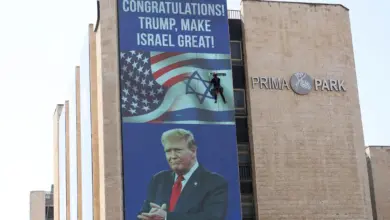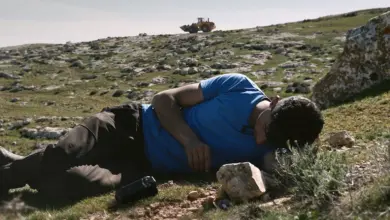Arish – If Egypt's revolution put an end to a longstanding feud between police and the Bedouins of North Sinai, it also meant greater liberty for the thriving underground economy of the governorate.
However, some imminent post-uprising threats could challenge North Sinai’s informal economy. The opening of the Rafah border crossing with Gaza, the redeployment of security, and the changing relationship between Egypt and Hamas, the rulers of Gaza, have raised red flags for smugglers.
“You see no more checkpoints every 100 meters outside of Arish. Those of us who dreaded coming to the city for fear of being arrested are now smoking their shisha in downtown Arish’s cafés, out in the open,” said Salem*, a co-owner of a tunnel that mostly transports building materials like cement and steel into Gaza. “State security is gone. They used to antagonize us the most. The Armed Forces are busy with other things and have no time to combat smuggling activities.”
Besides the usual traffic of goods and gas from Rafah to Gaza, the security void has also re-activated arms smuggling from Gaza into Egypt, where guns are reportedly cheaper. “People in Arish in particular rushed into getting cheap arms from Gaza,” said Salem, who added that mounting tribal feuds amid the security void are prompting wider arms proliferation in North Sinai.
It was not only Egypt’s revolution that served the flourishing underground economy, the ongoing uprising in Libya also helped. Salem and Ahmad, his partner in the tunnel business, are venturing into car smuggling.
Since the revolution erupted in Libya on 17 February, they have been buying un-taxed Libyan cars using Libyan names, driving them along the Mediterranean coast all the way to Rafah and delivering them via the tunnels to Gaza. Ahmad says there are no less than eight car tunnels in Rafah, a surge from only two reported ones before.
Salem estimates that the tunnels generate no less than LE250,000 per month in revenue in North Sinai. Fellow smugglers estimate about 1400 tunnels in the border town, each engaging a network of sub-employees, including drivers, carriers and packers.
Abdel Wahab Mabrouk, the newly appointed governor of North Sinai, told Al-Masry Al-Youm that the security re-deployment is on its way.
“No less than 30 percent of the area’s basic demands go to Gaza via the tunnels,” he said. “We are working toward the redeployment of security to provide for better control, but we’re trying to include more people from within North Sinai in the security body.”
Beyond retuning security to the northern peninsula, the current Fatah-Hamas rapprochement that followed the Cairo-brokered reconciliation agreement signed in late April is a potential long-term threat to the tunnel activity. Smugglers worry of another potential lifeline of goods to Gaza from the West Bank, which will limit the demand for the tunnels.
Another imminent challenge is the creation of a Palestinian state. Palestinian leadership is currently suggesting that it will pursue recognition of its statehood by the United Nations in September. “This will mean that the crossings in Rafah will be more actively used for the transfer of goods that would be taxed in order to create an income for the newly founded state,” said Salem.
The permanent opening of the Rafah crossing on 28 May, meanwhile, does not represent an immediate problem for smugglers, they say, as it is still a highly scrutinized point of passage. For one, the Rafah crossing caters mostly to individuals, in addition to medical supplies.
While the opening of the crossing was hailed as one of the blessings of the Egyptian revolution, on the ground, the situation is more complicated.
At the crossing on Wednesday, tens of Palestinian families were waiting on the Egyptian side of the border. Some were denied entry to Gaza. Others were waiting for their relatives from the territory who were prevented by the Egyptian authorities from crossing to Egypt.
“I managed to cross, but my friends are being turned away by the Egyptian authorities to Gaza,” Haytham Ahmad, a 25-year-old Palestinian student, told Al-Masry Al-Youm. “At the crossing, I had to wait for six hours as the military intelligence was interrogating us. The officer kept asking me if I work with smugglers just because I live in [the Palestinian] Rafah. Smuggling across the tunnels remains a barrier to our free movement.”
On Wednesday Hamas officials complained about the Egyptian management of the crossing. Egypt has indicated that the crossing is open unconditionally for Palestinians under 18 and older than 40, while men aged in between need to have visas or invitation letters.
Fatheya Mohamed, a Palestinian from Gaza in her fifties, moved to Egypt in 1969 and has not returned to her hometown since. “When we heard about the crossing being opened, we were very happy. We collected our documents and came,” she said.
Mohamed lives in Egypt with a Palestinian refugee travel document, but was turned away at the crossing for not having a Palestinian ID card. “Palestinian IDs are typically required at Israeli checkpoints,” she said. “Where would I get an ID from if I am a refugee?
“The Egyptians are trying to improve their image, but it’s all at our expense. I will be very happy if they let me cross and I die the moment I get to Gaza. But I don’t see any change now,” Mohamed added.
Mabrouk, the governor, added that the crossing is open six days a week, nine hours a day. According to him, between 600 and 750 people have crossed the border each day since it opened.
“The crossing has a capacity that cannot be over-stretched. I expect its efficiency to improve in the near future, especially after the reconciliation accord,” Mabrouk said.
But the accord won’t solve the problem of critical goods that would still not make it to Gaza through legal channels because of Israeli limitations, including, importantly, building materials.
For smugglers, the merits of their underground economy are not unaffected by the opening of the borders. The underground is much more lucrative than any economy that would result from the opening of the border, and that is why they want protect their illegal activities.
“Moving on the ground will never replace the underground,” Salem said.
*Only smugglers' first names have been used in this story to protect their identities.




